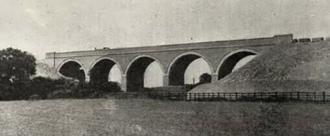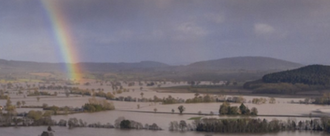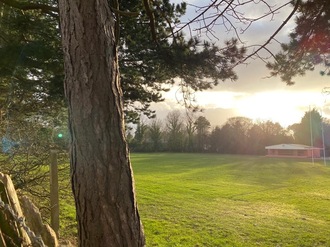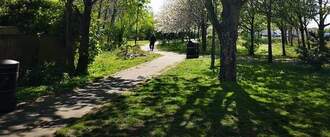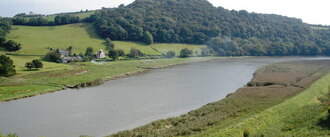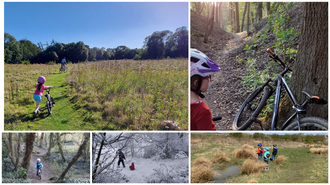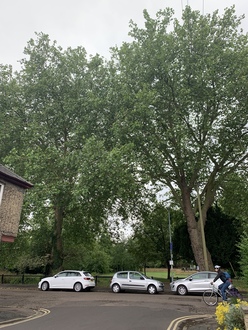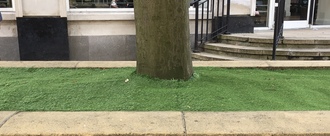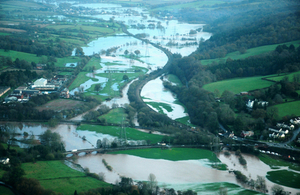-
Coal Produces More Earthquakes than Fracking, So Lets Talk About Sellafield and the MineUNIQUELY DANGEROUS COAL MINE This deep coal mine is unlike any other coal mine. It is just five miles from the world’s riskiest nuclear waste site. We urge the Planning Inspector to put earthquake risk and expected subsidence clearly front and centre. It is no accident that it was nuclear safety campaigners, Radiation Free Lakeland who first alerted the nonchalant world in 2017 to the dangers posed by this coal mine. CUMBRIAN MUD PATCH ON THE IRISH SEA BED In addition to induced earthquake risks the mine would be directly below Sellafield’s decades of nuclear waste which have been discharged down pipelines into the Irish Sea and are now largely (but not completely) held in the Cumbrian Mud Patch. Adding vicious insult to injury the CEO of the coal mine, Mark Kirkbride, has been appointed to “Deliver” a deep nuclear dump for the UK government and has already provided preliminary costings of £1.7 Billion just to dig the hole. 1000 METRES DEEP Exploratory boreholes (allowed by County Council under “Permitted Development”) for the coal mine extend to 1000 metres, well below the known coal deposits, through geological faults. The ‘exploratory boreholes’ have already accidentally hit a methane gas pocket in the Irish Sea near Sellafield. MAN MADE EARTHQUAKES It is accepted that coal mining is far worse than fracking for causing earthquakes and man-made earthquakes in former coal mining regions including Cumbria have substantially declined since the stopping of deep coal mining. SECRETIVE NEW LICENCE APPLICATIONS The developers West Cumbria Mining have applied for new licence applications. The public and we presume the Planning Inspector are being denied sight of the new plans. We wonder how the planning inquiry can be at all valid without sight of these new licence applications? PLANNING INQUIRY INTO A DECISION THAT THE COUNCIL WILL NOT DEFEND - IS THIS A FIRST? We are also confused about the rationale for the Inquiry given that the Planning Inspector is looking into a decision by Cumbria County Council, a decision that has since been effectively withdrawn i.e. the Council are not defending their approval of the coal mine and have effectively withdrawn approval. PUT EARTHQUAKE AND SUBSIDENCE FRONT AND CENTRE. Please ensure that earthquake risk is put front and centre of this planning inquiry. Coal mining is far worse than fracking for induced seismicity and Sellafield is just five miles away. To not put earthquake and subsidence front and centre would be to allow the Secretary of State to turn a blind eye to arguably the most damning and dangerous aspects of this coal mine. WHO WILL TAKE RESPONSIBILITY? The environmental impacts of disturbing the radioactive settlement in the Cumbrian Mud Patch by the "expected subsidence" (West Cumbria Mining) cannot be understated. Who would take the responsibility of cleaning-up the Irish Sea the beaches and 10 miles inland in the worst case scenario which would see the resuspension of several decades of radioactive wastes. Who would take responsibility for induced seismicity resulting from this new coal mine? West Cumbria Mining? The County Council? Sellafield? Induced seismicity could include: *liquefaction of the Sellafield site *widening of undetected cracks in the Magnox Swarf Silos on the Sellafield site "Current leak rates are circa 1.5 – 2.5 m3/d. It is desirable to reduce these as much as possible. At present, it is not possible to determine with certainty the precise location of the leak, or indeed the silo or silos (of the 6) that is leaking." * loss of coolant for high level wastes could impact the whole of Europe. *localised flooding exacerbating corrosion of existing and planned nuclear storage sites at Drigg and the Port of Workington. Anthropomorphic Earthquakes in the UK https://www.researchgate.net/publication/283186824_Anthropogenic_earthquakes_in_the_UK_A_national_baseline_prior_to_shale_exploitation Sellafield's Magnox Swarf Silos' Leaking https://www.gamechangers.technology/challenge/Leak_prevention_or_minimisation Sellafield Radioactive Discharge on the Irish Sea Bed directly beneath the coal mine plan and question of 'Who is Responsible for Safety of the Discharged Nuclear Wastes?' is subject to complaint being dealt with by the Information Commissioner https://www.whatdotheyknow.com/request/responsibility_for_discharged_ra Coal Authority Licences https://keepcumbriancoalinthehole.wordpress.com/2021/01/18/do-not-rubber-stamp-new-coal-authority-licenses-for-cumbria/ 6th Climate Budget https://www.theccc.org.uk/publication/sixth-carbon-budget/ note the Climate Change Committee is appointed by BEIS who have also appointed the Coal Boss, Mark Kirkbride to advise Government (CoRWM) on the 'Delivery of a Geological Disposal Facility" (or more than one). British Geological Society Lack of Testing in West Cumbria https://www.whatdotheyknow.com/request/west_cumbria_mining_abstraction#incoming-1625582 Who is Responsible for Radioactive Waste on the Irish Sea Bed – Call from Nuclear Free Local Authorities https://www.nuclearpolicy.info/news/nfla-troubled-uk-communities-minister-not-calling-in-decision-deep-underground-coal-mine-west-cumbria/ https://issuu.com/wildart/docs/west_cumbria_mining_-_radiological_implications_of259 of 300 SignaturesCreated by Marianne Birkby
-
Preserve Bourne to Saxby LineThe Bourne to Saxby line in Lincolnshire was the first complete railway system to be dismantled in the UK making the line and all the structures upon the line historically unique. The line and its railway structures has national significance to the railway history of England, and as such we ask Historic England to list the line and its affiliated structures to protect its historical value, so that future generations can learn, enjoy and experience this part of our English heritage. By signing this petition we will be demonstrating to Historic England how important this line and its affiliated structures are to us.267 of 300 SignaturesCreated by Steven Giullari
-
Help Protect Nature and Halt Climate ChangeMany local councils, including Devon County Council support the CEE Bill and by doing so they are giving MPs the mandate to support this bill in parliament. Signing this petition to West Devon Council is a real way of getting your voice heard. We need to let our MPs know that we want them to join the cross party parliamentary support for this bill. The dangers of climate change and loss of natural habitat are happening across the whole world. People are dying and species extinction is accelerating. Governments are not taking enough action. Our Government appointed Committee on Climate Change gave this key message in June 2021 "This defining year for the UK’s climate credentials has been marred by uncertainty and delay to a host of new climate strategies. Those that have emerged have too often missed the mark. With every month of inaction, it is harder for the UK to get on track." The House of Commons Environmental Audit Committee stated in June 2021 "Of all G7 countries, the UK has the lowest level of biodiversity left. 15% of our species are now threatened with extinction. It is not too late to change course. Experts say that this downward trend can be reversed, but only through urgent transformative change." The Intergovernmental Panel on Climate Change (IPCC) says it is now “Code Red for Humanity.” and warns that immediate, rapid and large-scale reductions in greenhouse gas emissions are needed to keep alive any hope of keeping to the goal, established in 2015 as a threshold for avoiding the worst impacts of climate change.407 of 500 SignaturesCreated by West Devon CEE Bill Alliance
-
Protect Noctorum Field & Preserve Wirral Green SpaceProtecting Noctorum Field as a Local Green Space is just one of the many local acts needed globally to protect the planet. Your support for this petition is an act of climate responsibility. Sustaining, protecting, growing and defending our natural and ancient green spaces requires people to care about the environment and eco-cultures in their localities. And resident and people led movements to protect their local lived environment can support our elected and borough officials to protect the social, environmental values of the biosphere for the well-being people locally and globally.765 of 800 SignaturesCreated by Carmel Nolan
-
Save Orient Way Pocket ParkIn the midst of the Climate Emergency, the struggle to mitigate the Covid 19 legacy and the impending Lea Bridge Gas Works scheme, we all , humans and wildlife, need this calm, green oasis more than ever.1,721 of 2,000 SignaturesCreated by Save Orient Way Pocket Park

-
Stop Releasing Contaminated Rainwater into the TamarWe are in the middle of a climate and ecological crisis which means companies must be polluting less, not polluting more. It endangers not only Plymouth but the surrounding areas [such as Saltash and Torpoint]. It is insidious and the effects could be long-lasting not only on the current generation but on future generations. In November 2008, 280 litres of radioactive liquid poured into the River Tamar after a hose burst. In 2005, refit work was temporarily suspended on HMS Victorious after two radioactive leaks in one week. All in all, at least ten serious nuclear leaks have been reported at Devonport in the last thirty years with 570 litres of radioactive liquid lost overall. Now the MOD wants to add more irradiated rainwater into the River Tamar. We must put a stop to it. Now!279 of 300 SignaturesCreated by Pete Golding
-
Save the Wild, Wooded & Biodiverse Areas of the Quarry Site Development in North Stamford!As local residents who love the outdoors and respect the importance of our rural landscape, we want our local authorities to commit to meaningful and substantial protection of existing wilderness and biodiversity. Once it's gone it won't come back! We certainly do not want tokenistic, uninspiring tamed landscapes commonly found in crammed into housing developments; insultingly labelled as ‘green spaces’ and 'country parks'. As a local resident, my family visits the quarry multiple times a week, as do my local friends. This wild, natural site is a beautiful, unspoiled place for wooded walks, mountain biking, picnics, birdwatching, sunsets, and general outdoors greenery, nature and wellbeing, away from populated areas. It clearly has high biodiversity. We frequently see a variety of butterflies, bees, dragonflies, frogs, and protected wildlife such as bats, newts and a wide range of wild birds. Further development would harm these precious, vital natural systems. We must protect them properly and give them space to thrive. My family, friends, and I are devastated at the prospect of this special place being so unfairly reduced. My daughter is the most confident little track/mountain biker at age 5, because of this perfect oasis on our doorstep. The rough, wild tracks and landscape have allowed her to become a warrior and nature-lover alike. She helps pick litter and cares very much. I seriously doubt she and her friends would have any such deep, meaningful respect for sterile, artificial environments. We have recently adopted a child too, and a huge part of what we could offer as a family when chosen, were the natural surroundings on our doorstep; opportunities to experience wild adventure daily. For us North Stamford residents, the quarry is very accessible, and it is a totally different place to parks and sites like Burghley, which are also wonderful in their own ways! The quarry site offers a wild and untamed landscape which is fantastic for instilling resilience, adventure, and respect for nature in our children. Such a wild landscape plays an important part in our responsibility to repair biodiversity. ‘Development’ and 'growth' should NOT mean paving over precious wild spaces and cramming in housing. It SHOULD mean preserving natural environments and the wholesome enrichment they offer. I am aware local authorities plan for functional, safe and pleasant surroundings. However, my petition goes beyond this. It aims for you to commit to meaningful and substantial protection of existing wilderness; certainly not tokenistic, uninspiring tamed landscapes commonly found in housing developments; insultingly labelled as ‘green spaces’ and 'country parks'. As a practicing Child and Educational Psychologist, I strongly advocate for our children's mental health and resilience flourishing with true nature and physical adventure. Mountain biking, walking, scrambling, bush craft, nature conservation, birdwatching and countryside appreciation are all wonderful things our community can do in these woods and meadows. Such a wild landscape plays an important part in our responsibility to repair biodiversity. ‘Development’ and 'growth' should NOT mean paving over precious wild spaces and cramming in housing. It SHOULD mean preserving natural environments and the wholesome enrichment they offer. We should embrace and protect our rural heart. Join me in taking a stand and having a voice, to protect and embrace our rural heart, landscape and biodiversity!1,320 of 2,000 SignaturesCreated by Lise Griffiths
-
SAVE THE ALEXANDRA GАRDENS TREES!The trees under threat are 120 years old and a spectacular addition to the amenity of the Gardens, enjoyed by generations of residents and visitors. The Gardens have a recently renovated playground which attracts families from across the city. The proposed pollarding seriously disfigures the trees in perpetuity, making them unattractive and unnatural in appearance. At a time of environmental emergency, the city council should find more creative solutions to the problem of building subsidence than simply chopping back trees that have graced the neighbourhood for more than a century.169 of 200 SignaturesCreated by Daniel Beer
-
Stop using Glyphosate weed killerResearch shows that herbicide use has multiple harmful effects on human and animal health, and causes environmental pollution and degradation. Glyphosate has, according to recent studies, been linked to the death of bees. It weakens their gut bacteria making them more susceptible to disease leading to a higher bee mortality rate. Bees play an essential role in our ecosystem because of their primary mission, which is pollination. This action allows plants to reproduce. Bees are among the most effective pollinating insects alongside wasps and butterflies. Globally, there are more honey bees than any other pollinating insects. They are vital to pollinate the plants that produce the food that we eat to survive. Pollination is vital to the health of the global food system. And a single bee colony can pollinate 300 million flowers in one day. If the bees go extinct, a ripple effect will be felt through the ecosystems, such as a plant die-off that will impact the entire food chain. "The absence of bees and other pollinators would wipe out coffee, apples, almonds, tomatoes, and cocoa, to name just a few of the crops that rely on pollination," Graziano da Silva, scholar and director-general of the Food and Agriculture Organization from 2012 to 2019. There have been 3 successful lawsuits against Monsanto (now owned by Bayer), which brought glyphosate-based herbicides to the market in the 1970s, and there are many more cases going to trial. Nineteen countries have already either banned or restricted the use of glyphosate, and 5 more have plans to do so imminently. Many towns and cities across the world have made the decision to go pesticide-free, using methods such as hot-foam, flame weeding, scraping, acetic acid solution and accepting a certain level of ‘weediness’.280 of 300 SignaturesCreated by Extinction Rebellion Winchester

-
Remove the plastic grass and support biodiversity and community.The Natural Environment and Rural Communities Act (2006) requires all public authorities to have regard for conserving biodiversity in the exercise of their functions. Planning policies and decisions should minimise impacts on and provide net gains for biodiversity. Artificial grass holds no biodiversity net gains. Burrowing insects, such as solitary bees can’t get past the membrane, and worms beneath the soil are compromised and unreachable by consumers within each habitat community. This is likely to have a negative impact on local bird populations and other consumers, as the food source within the food chain is being reduced and/or removed. Britain’s bees are in trouble with 35 UK bee species under threat of extinction. The implications of this on human food sources, are colossal. We need to be enhancing bee’s habitats and feeding ground, not destroying it. The health of each planter ecosystem is threatened, as a plastic environment is not life sustaining. Though seemingly small, this could have far reaching, negative impact. Harrogate Borough Council’s Carbon Reduction Strategy highlights the damaging effects of climate change and refers to the UK Climate Change Act 2008, which sets the legally binding UK-wide carbon budget. The removal of living flora has removed carbon sequestration and biodiversity. The use of artificial grass provides no biodiversity benefits, furthermore its production and degradation add to carbon emissions. Though this artificial grass may be possible to recycle, the financial and environmental costs of this have not been considered. Though it may be long-lasting, the threat to human health via micro plastics washing into local drainage systems; carcinogenic substances present, and possible burn hazards in hotter temperatures, has not been considered. Key points within the HBC Carbon Reduction strategy include: ‘The council has a corporate responsibility both as a large employer and a community leader to take action to reduce emissions.’ The removal of flora, use of plastic and lack of community consultation and engagement has directly contradicted this point. Priority 4 states to ‘eliminate all single-use plastic from their premises where possible.’ The use of this plastic grass was completely avoidable. Had the council consulted with the public, many alternative options could have been explored, supporting community involvement and well-being. With much research on nature supporting emotional well-being, and considering the current lockdown and rise in mental health concerns, engaging community with outdoor, nature-based activities should be a priority for our council. We believe in community and unity. Together, we are capable of truly wonderful things. We need a council that works with the community and supports community engagement. Considering the legally binding aspects mentioned above; biodiversity net gain and carbon reduction should be a priority for our council. The natural world provides us with water to drink, air to breathe, and food to eat. Everything is linked and everything we do matters. We must protect the environment for moral and economic reasons. We need more habitats, not more plastic.561 of 600 SignaturesCreated by Sarah Gibbs
-
Climate Change - launch a Public Information CampaignCombatting climate change is not just an issue for politicians and industry. It requires changes in behaviour by everybody in their everyday lives,. Although most people will have heard of climate change and enjoyed David Attenborough's documentaries, they need to be made aware of what they need to do to contribute. Why should they eat less meat, drive an electric vehicle, replace their gas-fired heating with a heat pump etc. The government's "Together for our planet" campaign is not reaching people. We need a TV and social media campaign as was done for Covid 19. Climate change is even more of a global crisis than Covid 19 and we have the means to mitigate its impact if governments, local authorities and the people all work together.163 of 200 SignaturesCreated by Paul Johns
-
Stop Cancellation of Bedford Place Pedestrianisation ZoneThe Labour Councillors in Southampton originally created this safe space for pedestrians. This is a vibrant area for entertainment and shopping. The opening up of the space for outdoor use for everyone has been hugely beneficial during the pandemic. The continued use will provide some health security for the new-normal and gives safe transit for cyclists and scooter users towards the City centre; and directly promotes a greener, cleaner and safer environment for all. Please don't let this be taken away.1,609 of 2,000 SignaturesCreated by John Savage
Hello! We use cookies to improve your experience by providing insights into how the site is being used. Find out more.

